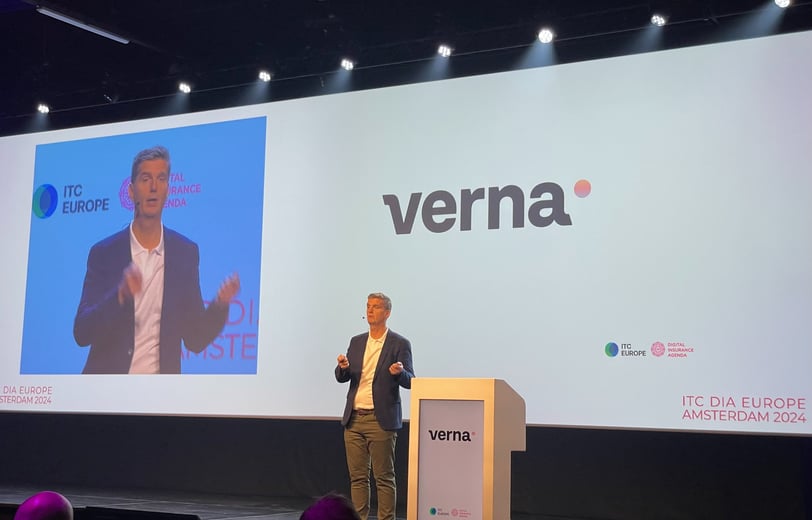Addressing Telemetric Challenges in Insurance: Insights from Verna's Strategies
Fridrik took the stage at ITC DIA Europe in Amsterdam to discuss the issues that insurers and policyholders have with past and present telematics solutions, and how Verna addresses these challenges.
10/30/20242 min read


Verna: Smart insurance that reduces risks in traffic and simplifies people's lives
The insurance industry today faces a host of challenges that stand in the way of growth and customer satisfaction. Among these are limited customer engagement, declining loyalty, high acquisition costs, and a growing frustration over a lack of transparency and personalization.
For the past twenty years, telematics insurance has been touted as a potential game-changer, offering the promise of a more proactive and tailored insurance experience. Yet, despite its potential, telematics has struggled to gain foothold in most markets. Why? According to Icelandic Insurtech company Verna, there are three main reasons for this:
Negative User Experience: Many insurers expect customers to install a black box in their car. This is too complex and can deter engagement right from the start.
Privacy Concerns: Customers are not comfortable with sharing their driving data and how that information might be used in claims assessments. This can create significant barriers to adopting telematics solutions.
The "Forever Score" Dilemma: When drivers begin tracking their behavior at the start of a new period, the impact of any single trip—especially after the 201st journey—feels minimal. This lack of immediate incentives can lead to disengagement from the telematics app.
Verna develops smart insurance solutions, using technology and data to incentivize cooperation and risk-reducing behaviour. The Verna Digital Motor Insurance product combines telematics with an ecosystem of services that helps customers use the car on daily basis. Customers control the price with the Verna app, which creates their personalized driving score and provides them with feedback on how to drive better and lower the price every month.
Verna uses the sensors in the standard phone to assess how people are driving. This makes it easier for the customer onboarding, which takes less than two minutes. And the data is equally good. Verna also carefully addresses privacy issues. The overall scores are shared, but the individual trip data is private and only accessible from the customer’s phone, because the customer might not be comfortable sharing that.
What truly distinguishes Verna is our integrated ecosystem of value-added services that enhance your daily driving experience. It helps customers daily, like pay for parking, finding the cheapest gas, car washing stations and tire changes in the neighbourhood etc.
Through gamification, the Verna app encourages safer driving behaviors by rewarding users with credits and discounts for improved driving performance using a "sticks and carrots" approach.Lack of Engagement and Its Implications
One of the primary challenges faced by insurers using telematics is the lack of engagement from policyholders. Many individuals struggle to see the benefits of sharing their driving data, leading to a disconnect between the services offered and consumer participation. Verna recognizes this hurdle and emphasizes the importance of fostering engagement by designing user-friendly interfaces and offering clear incentives for data sharing. Through active communication and feedback mechanisms, Verna aims to create a more interactive experience that encourages customers to participate fully.
